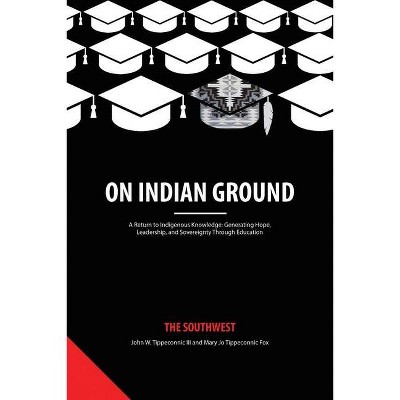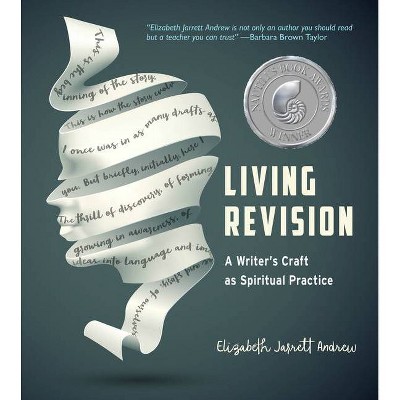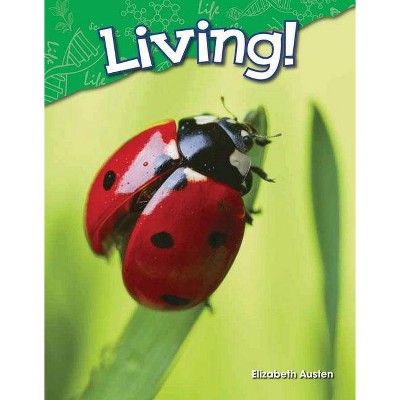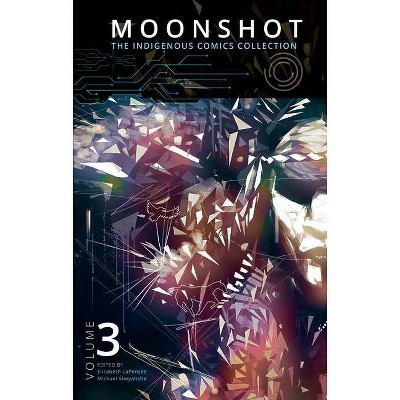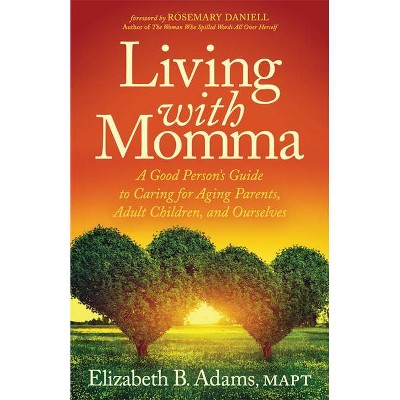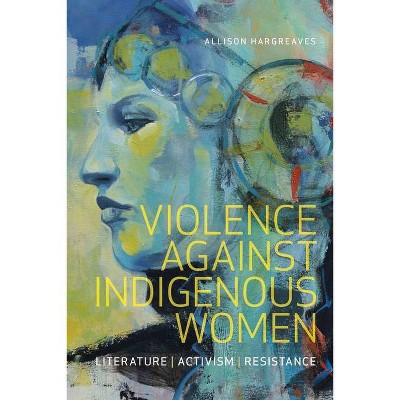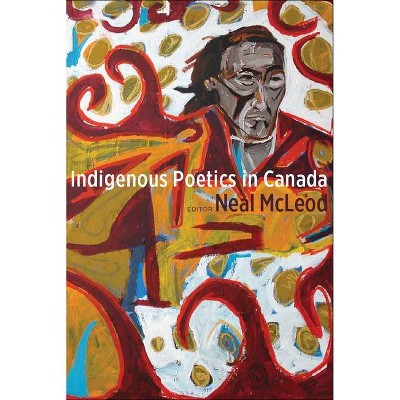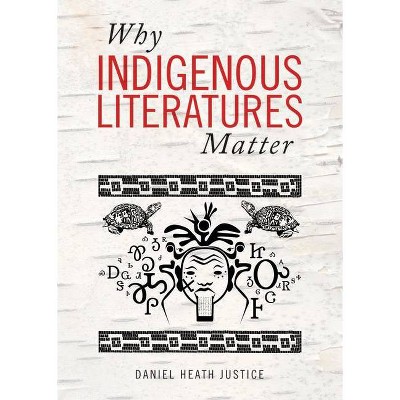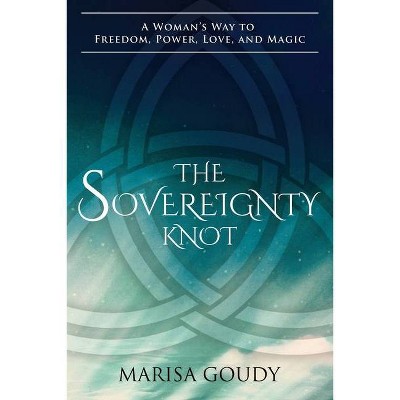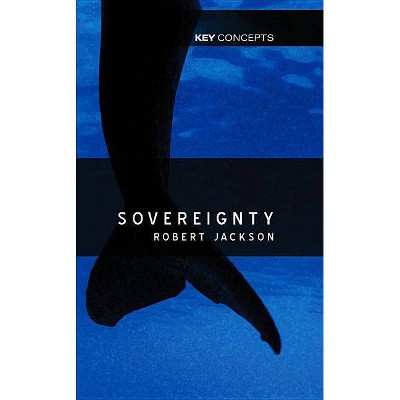Living in Indigenous Sovereignty - by Elizabeth Carlson-Manathara (Paperback)
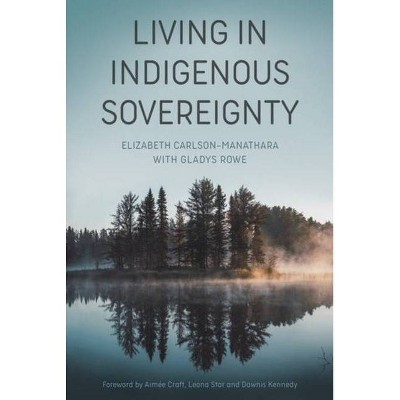
Similar Products
Products of same category from the store
AllProduct info
<p/><br></br><p><b> About the Book </b></p></br></br>Living in Indigenous Sovereignty offers inspiration and guidance for non-Indigenous peoples who wish to live honourably in relationship with Indigenous peoples, laws, and lands.<p/><br></br><p><b> Book Synopsis </b></p></br></br>In the last decade, the relationship between settler Canadians and Indigenous Peoples has been highlighted by the Truth and Reconciliation Commission, the National Inquiry into Missing and Murdered Indigenous Women and Girls, the Idle No More movement, the Wet'suwet'en struggle against pipeline development and other Indigenous-led struggles for Indigenous sovereignty and decolonization. Increasing numbers of Canadians are beginning to recognize how settler colonialism continues to shape relationships on these lands. With this recognition comes the question many settler Canadians are now asking, what can I do? <p/>Living in Indigenous Sovereignty lifts up the wisdom of Indigenous scholars, activists and knowledge keepers who speak pointedly to what they are asking of non-Indigenous people. It also shares the experiences of thirteen white settler Canadians who are deeply engaged in solidarity work with Indigenous Peoples. Together, these stories offer inspiration and guidance for settler Canadians who wish to live honourably in relationship with Indigenous Peoples, laws and lands. If Canadians truly want to achieve this goal, Carlson and Rowe argue, they will pursue a reorientation of their lives toward "living in Indigenous sovereignty" -- living in an awareness that these are Indigenous lands, containing relationships, laws, protocols, stories, obligations and opportunities that have been understood and practised by Indigenous peoples since time immemorial. <p/>Collectively, these stories will help settler Canadians understand what transformations we must undertake if we are to fundamentally shift our current relations and find a new way forward, together.<p/><br></br><p><b> Review Quotes </b></p></br></br><br>"A powerful decolonial reflection and call to action for settler peoples to learn how to work in solidarity with Indigenous peoples in ways that are decolonizing not recolonizing. Guided by teachings from Indigenous elders, scholars, and activists about the importance of creating relationships with kindness, humility, mutual respect and reciprocity, non-Indigenous readers can find inspiration in the life stories of settlers who speak frankly about their ongoing struggles to do this work in a good way."--Paulette Regan, author of Unsettling the Settler Within: Indian Residential Schools, Truth Telling, and Reconciliation in Canada and Senior Researcher/Lead Writer of "Reconciliation," Volume 6 of the TRC Final Report<br><br>"This is the most comprehensive book on anti-colonial practice focused on non-indigenous peoples. It draws on leading scholars and advocates from across the country and incorporates a breadth of concepts that create a solid and encompassing foundation for creating change. By incorporating these ideas, perspectives, experiences and practices, non-Indigenous and Indigenous people will be well prepared for our work and parallel journey ahead."--Michael Anthony Hart, Vice Provost (Indigenous Engagement), Professor, Faculty of Social Work, University of Calgary, author of Seeking Mino-Pimatisiwin and Wicihitowin<br><p/><br></br><p><b> About the Author </b></p></br></br>Elizabeth (Liz) Carlson-Manathara's Swedish, Sámi, German, Scots-Irish, and English ancestors settled on lands of the Anishinaabe and Omaha Nations, which were unethically obtained by the US government. She considers herself to be both complicit in and resisting settler colonialism on lands occupied by the Canadian state. Liz's scholarship is focused on the work of settlers in decolonization through the framework of living in Indigenous sovereignty; she also engages anti-colonial research methodologies and social work practice. She is involved with the Stories of Decolonization film project. Liz is currently learning to live in Indigenous sovereignty as a treaty relative of the Robinson-Huron Treaty of 1850 while working as an Assistant Professor in the School of Social Work at Laurentian University. <p/>Gladys Rowe, she/her, is a Swampy Cree scholar and a member of Fox Lake Cree Nation in Northern Manitoba, Canada. Gladys has expertise in Indigenist research, arts-based and participatory methodologies, and Indigenous innovation and evaluation. Her doctoral research used storytelling and poetry as a mechanism to learn more about Indigenous birth workers and their experiences reclaiming traditional birthing practices. Gladys is passionate about fostering meaningful connection and deep understanding through the sharing of stories.
Price History
Cheapest price in the interval: 29.49 on October 22, 2021
Most expensive price in the interval: 29.49 on November 8, 2021
Price Archive shows prices from various stores, lets you see history and find the cheapest. There is no actual sale on the website. For all support, inquiry and suggestion messagescommunication@pricearchive.us
